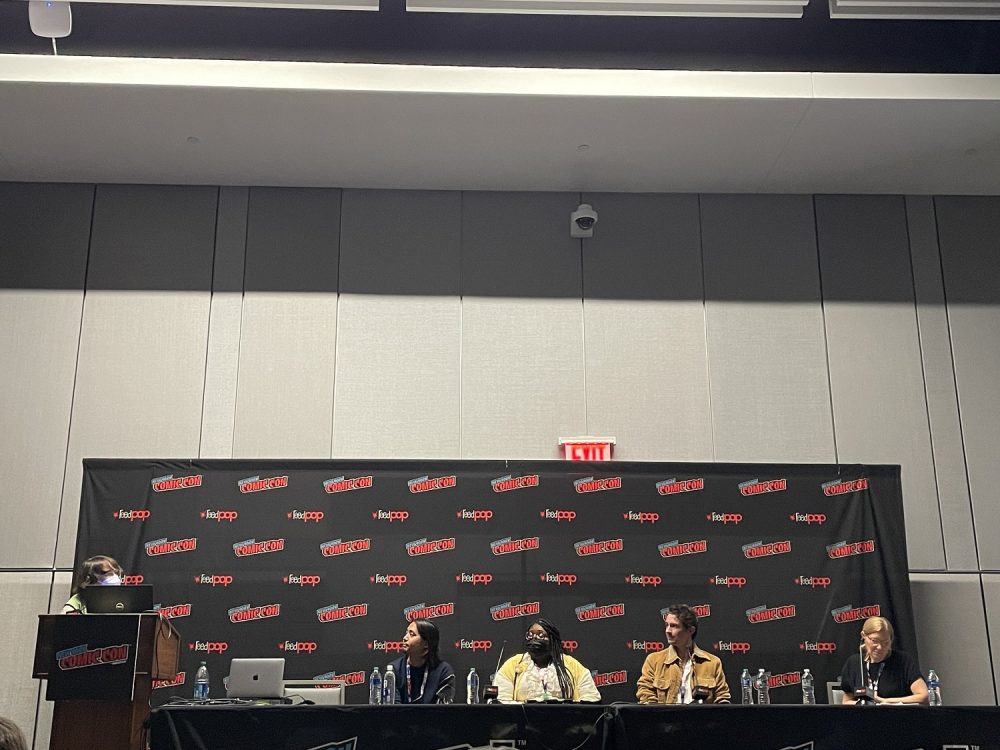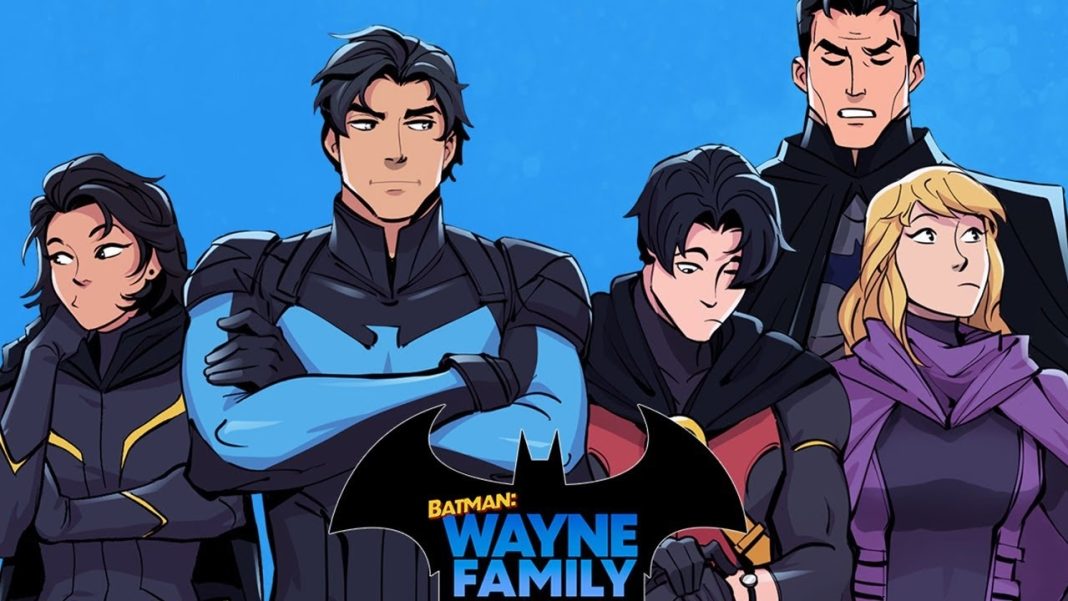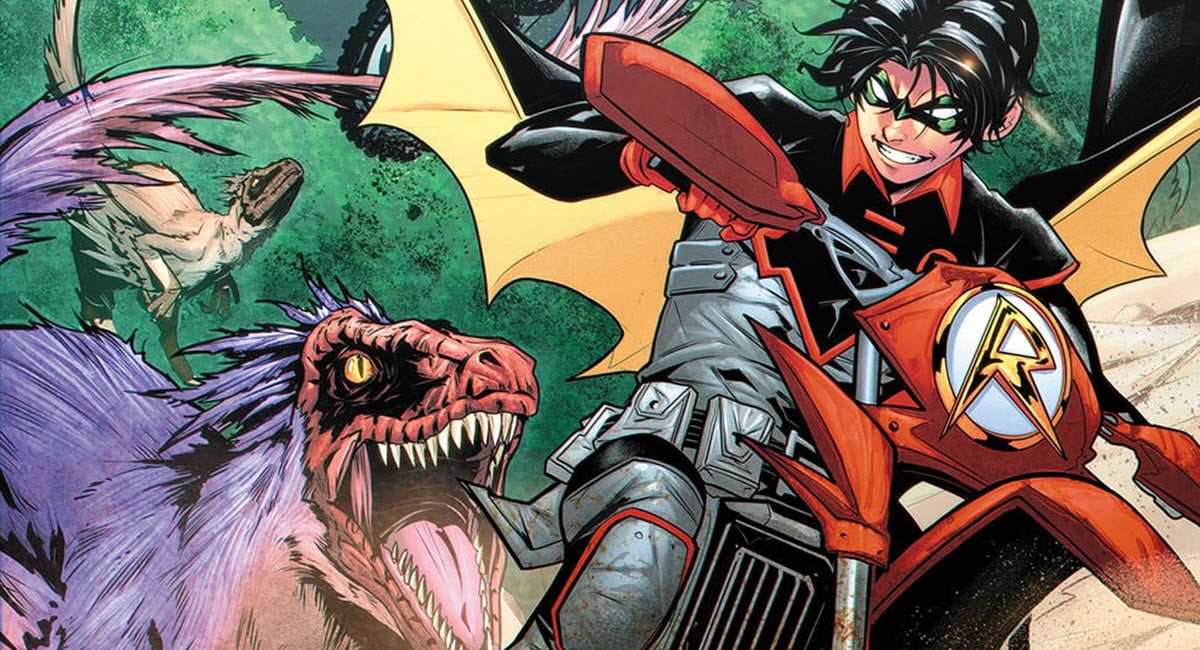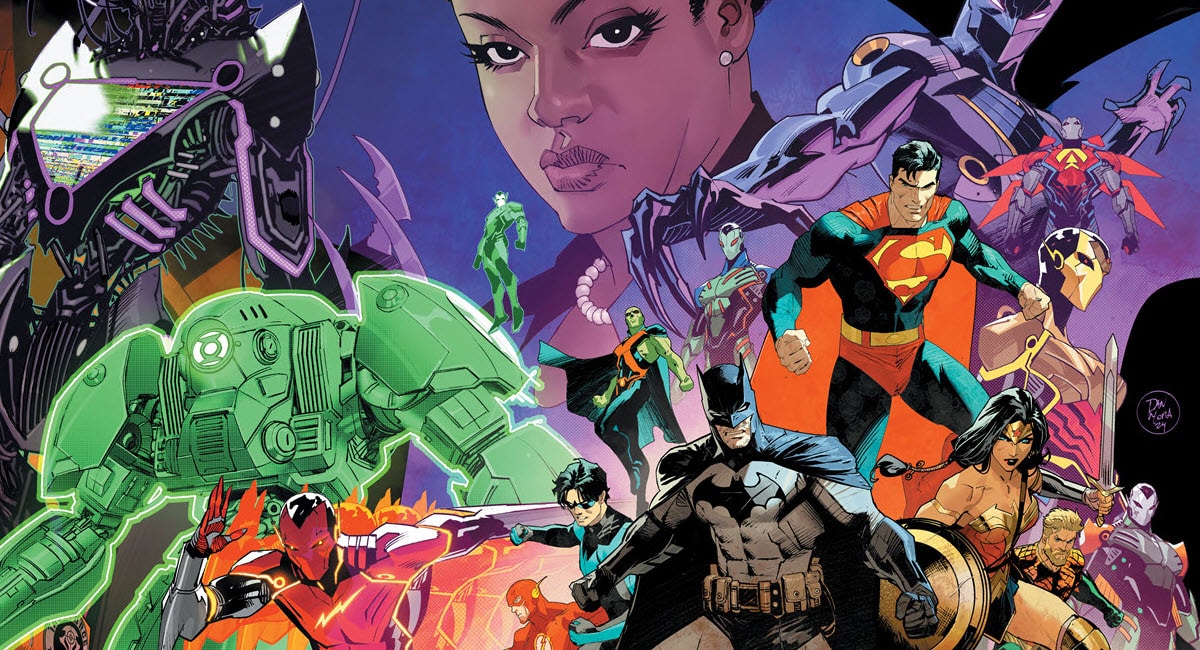The Webtoon and DC Comics partnership has been a major success for both parties, and at NYCC Thursday the creators and editors behind the comics held a panel discussing some of the possible reasons why.
For those who have some how missed it, the partnership has been an immediate and major success. In fact, this discussion came after a recent announcement that Wayne Family Adventures would be returning for a second season, one that actually got underway as of September 28. That series also nabbed an Eisner nomination this year for Best Webcomic. At present there are a total of four DC Comics series appearing on the vertical scroll, webcomics platform, with those being Wayne Family Adventures, Vixen: NYC, Red Hood: Outlaws, and Zatanna & Ripper.
On hand to discuss this success and pontificate about its causes were David Lee, VP of content for Webtoon; Manou Azumi, the artist of the Vixen webcomic; Patrick R. Young, the writer of the Red Hood webcomic; and Marie Javins, the editor-in-chief of DC Comics. The discussion was lead by moderator Rosie Knight.
While the conversation was wide-spanning, one idea that came up repeatedly was that Webtoon’s audience and format enables the exploration of different genres with the beloved, 80-year-old superhero characters that make up the DC Universe. Whereas paper comics in 22-page installments most often lend themselves to action-adventure stories, Webtoon is perhaps best suited for humor-tinged and slice-of-life storytelling.
“At the core, it’s fun,” Javins said. “It’s the comedy, it’s the humor. It’s the perfect venue for it. I imagine if I did 22 pages of buildup to do a joke, I don’t know if I’d be editor-in-chief very long at DC. But it’s the perfect format for that on a scroll. You’re like, ‘where is this going, where is this going.’ Boom, there’s a joke.”
Lee added that the quicker pace of release and the interactive nature of webcomics also plays nicely with slice-of-life stories. They move quicker and feel more relatable.
It’s also often a new way to see old characters.
“These are characters people feel like they know after 80 years,” Young said, “and now they get to spend time with them cooking.”
In addition, the Webtoon platform has an audience that is perhaps not nearly as familiar with traditional DC Comics continuity as a paper comics audience. For example, Lee said that he’s heard from a lot of readers that they were surprised about some of the elements that are at the heart of Wayne Family Adventures, which is essentially a story about about Batman living in his mansion with all the various Robins he has accrued (and continues to accrue) over the years.
“Most people in this room are familiar that Batman has more than one Robin…” Lee said, indicating people like me who came to see the panel and can name every Robin in order of first appearance, “…but most people think there’s only one Robin because it’s the only thing they’ve seen in movies.”
One of the things Webtoon enables is for creators like Azumi and Young to draw from the full breadth of DC continuity without having to be beholden to any of it.
“With Webtoon you’re not really stuck to any continuity,” Javins said. “One of the great fan experiences with reading monthly periodicals is knowing where your story fits in the grander scheme of that world…Webtoon with Wayne Family Adventures and Vixen, they can start over. They are not part of that ecosystem. They can make brand new interesting stories. They can put all the Robins in one house together.”
Another major factor for the success has been the ease with which readers can access DC Comics stories on Webtoon. Essentially, anyone with a smart phone or other mobile device can use the platform. Webtoon, it should be noted, also brings a very large pre-existing audience to the table.
While access to a comic book store or a traditional book store can be a barrier for entry, most everyone these days has a smartphone in their pocket. This, the panelists noted, creates a new two-way street, wherein readers might use Webtoon to discover Jason Todd, becoming a fan and ultimately ending up in a comic book store, looking for more stories about Jason Todd.
Creating stories for Webtoon, however, does mean using a different format, which has been an interesting adjustment for the creatives.
“With standard comics you have to think about the entire page layout,” Azumi said. “…but when you’re doing a vertical scroll, you have to think about how the next panels will play out. There’s some variation you can do with the panels when it’s vertical, but it’s way different.”

Young, who is typically a screenwriter by trade, said that for him the transition between mediums has been an easy one, comparing the way that the vertical scroll moves between panels to how transitions appear in movies.
The panelists turned coy a bit when it came to the future of the DC Comics, Webtoon partnership. Nothing was ready to be announced yet, but Lee did note that there were more in development, as well as a creator who rose to fame on Webtoon now working on a new DC project.
And while I did a bad job building to these last two quotes with leading transitions like a good Webtoon comic does, I do have two more funny bits from the panel to share.
Javins said this of the initial reaction to Wayne Family Adventures, wherein a ton of commenters thought it was illegal and unlicensed: “People just couldn’t conceive that people who make this kind of comic are also saying it’s okay to make this kind of comic. It was a big leap for a lot of people. For us, it was too. I had to rethink how I looked at a page of art.”
Finally, Young had this to say of the reaction from the Jason Todd fandom: “The most shocking thing through this whole process is just how thirsty everybody is. You don’t want to see the DMs.”








